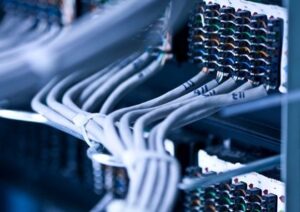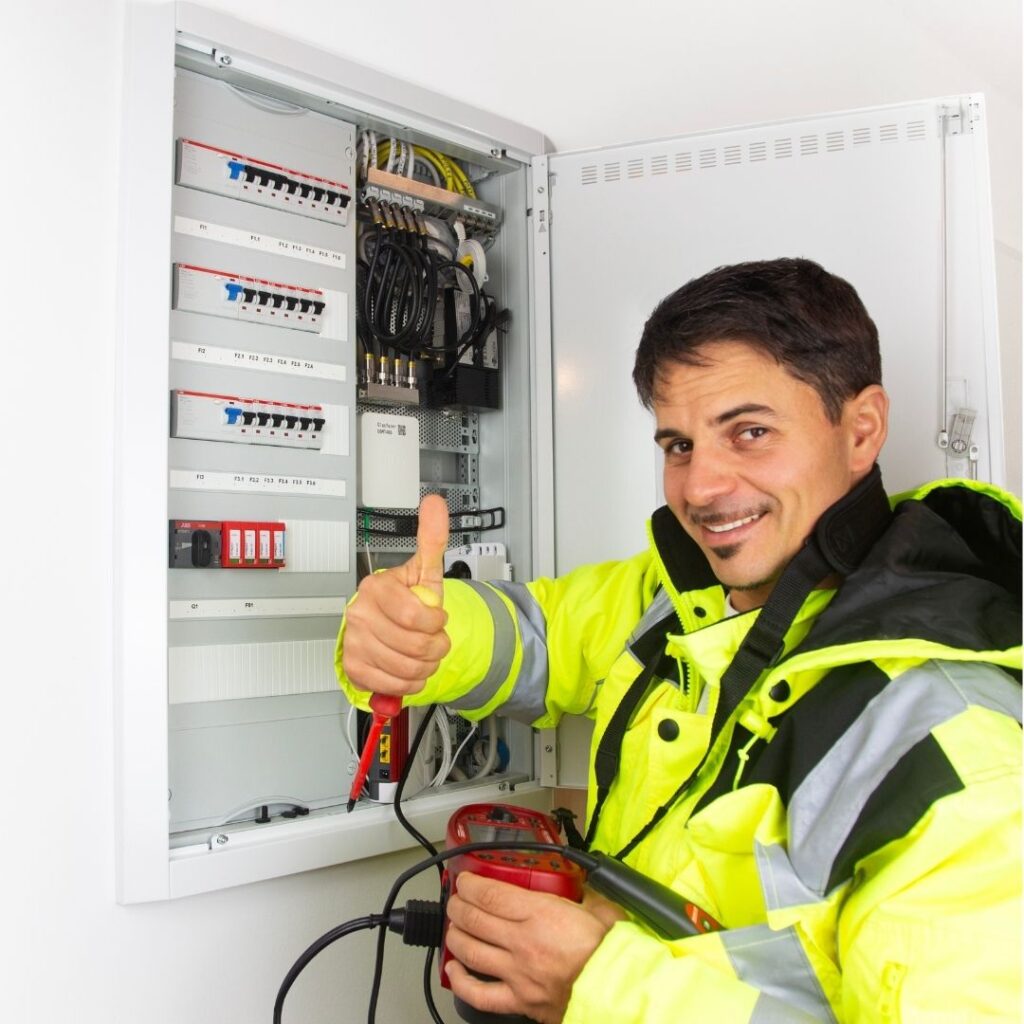In our increasingly connected world, the specialized expertise of a data electrician has become indispensable for businesses and organizations. A Data Cabling Technician bridges the gap between traditional electrical work and modern data infrastructure, combining knowledge of power systems with expertise in low-voltage data communications. This comprehensive guide explores the critical functions of a Data Cabling Technician, their unique skill set, and how they differ from other electrical specialists like those providing Commercial Electrician Services.

Understanding What a Data Electrician Does
A qualified Data Cabling Technician specializes in designing, installing, and maintaining the integrated systems that power our digital world. Unlike standard electricians who focus primarily on power distribution, a data electrician possesses specialized knowledge in data transmission systems, network infrastructure, and the interplay between electrical and data networks.
The core responsibilities of a Data Cabling Technician include installing and maintaining structured cabling systems, with expertise in Structured Data Cabling that forms the backbone of modern networks. They ensure proper separation and shielding between power and data cables to prevent interference, a critical consideration in today’s high-bandwidth environments.
Data electricians also configure and maintain network equipment racks, patch panels, and termination points. Their work often intersects with Industrial Electrician Duties when dealing with manufacturing automation systems that combine power and data components.
Key Services Provided by Professional Data Electricians
Professional Data Cabling Technician services encompass a wide range of technical solutions for both new installations and existing infrastructure upgrades. Network infrastructure installation forms a core service, where data electricians design and implement robust cabling systems that support current needs while allowing for future expansion.
Data center electrical solutions represent another critical service area. A skilled Data Cabling Technician understands the unique power requirements of server rooms and data centers, including proper grounding, UPS systems, and power distribution units. Their expertise ensures these sensitive environments have clean, reliable power alongside optimal data connectivity.
Fiber optic installations require specialized skills that many general electricians lack. A qualified data electrician can properly handle, terminate, and test fiber optic cables, which are increasingly important for high-speed backbone connections in commercial and industrial settings.
Integrated AV systems often fall under a Data Cabling Technician’s scope when they involve network-connected components. From digital signage to conference room technology, these professionals ensure both power and data requirements are properly met.
The Data Electrician’s Unique Skill Set
Performing Data Cabling Technician work effectively requires a combination of traditional electrical knowledge and specialized data expertise. These professionals must understand electrical theory and safety protocols while also mastering network protocols and data transmission principles.
Critical skills for a data electrician include proficiency in reading and interpreting both electrical schematics and network diagrams. They must understand how to properly separate power and data runs to prevent electromagnetic interference, a common issue in poorly designed installations.
Certification requirements for Data Cabling Technician professionals typically include standard electrical licensing plus additional qualifications in data communications. Many pursue manufacturer-specific certifications for the various cabling systems and network components they work with regularly.
Data Electricians vs. Other Electrical Specialists
While there’s some overlap, a Data Cabling Technician differs significantly from other electrical professionals. General Electrician Western Sydney providers typically focus on power distribution, lighting, and general electrical systems without specialized data training.
Industrial Electrician Services professionals work with heavy machinery and three-phase systems but may lack the low-voltage data expertise of a dedicated data electrician. Similarly, while a Data Cabler specializes in communications wiring, they typically don’t handle power systems like a Data Cabling Technician can.
This unique combination of skills makes the data electrician particularly valuable for projects requiring integration of power and data systems, such as smart buildings or industrial automation installations.

When to Hire a Data Electrician
Businesses should consider hiring a professional Data Cabling Technician for several specific scenarios. New construction projects benefit greatly from involving a data electrician during the design phase to ensure proper infrastructure for both power and data needs.
Network upgrades and expansions often require a data electrician’s expertise, particularly when moving to higher-speed standards or implementing new technologies like Power over Ethernet (PoE). These professionals can assess existing infrastructure and recommend cost-effective upgrade paths.
Troubleshooting persistent network issues sometimes reveals underlying electrical problems that a standard IT technician can’t resolve. A data electrician can identify and fix issues like ground loops, electromagnetic interference, or improper cable separation that degrade network performance.
Smart building implementations increasingly rely on data electrician services to integrate various systems including lighting controls, HVAC management, and security systems that combine power and data requirements.
The Data Electrician’s Role in Future-Proofing Infrastructure
A skilled Data Cabling Technician helps organizations prepare for technological advancements by designing flexible infrastructure. They recommend cabling types like high-category copper or fiber optics that support future bandwidth needs beyond current requirements.
Proper pathway design is another area where data electrician expertise proves valuable. By including adequate space and accessibility in cable runs, they ensure future upgrades can be implemented with minimal disruption.
The growing Internet of Things (IoT) trend increases demand for data electrician services as more devices require both power and data connections. These professionals understand how to design infrastructure that supports this expanding ecosystem of connected devices.
Choosing the Right Data Electrician
Selecting a qualified Data Cabling Technician requires careful evaluation of several factors. Verify that the professional holds both electrical licensing and relevant data communications certifications, demonstrating comprehensive expertise.
Experience with similar projects is crucial when choosing a data electrician. Ask for examples of comparable installations and check references to gauge their capability with your specific requirements. Companies like Lightspeed Electricals employ teams with proven experience across various data electrical applications.
Quality assurance practices separate exceptional Data Cabling Technician services from average providers. Inquire about their testing protocols and documentation standards to ensure thorough, professional results.
The Future of Data Electrician Services
The Data Cabling Technician field continues evolving alongside technological advancements. Emerging trends include growing demand for fiber optic expertise as bandwidth requirements increase across industries.
Energy efficiency considerations are becoming more prominent in data electrician work, with smart power distribution and monitoring gaining importance. Renewable energy integration also creates new opportunities and challenges for these professionals.
The convergence of operational technology (OT) and information technology (IT) in industrial settings expands the data electrician’s role in manufacturing and automation environments.

Conclusion: The Growing Importance of Data Electricians
As technology becomes increasingly integrated into every aspect of business operations, the specialized skills of a Data Cabling Technician will continue growing in value. These professionals fill a critical gap between traditional electrical work and modern data communications needs.
Whether implementing Structured Data Cabling systems, troubleshooting complex network issues, or designing infrastructure for future technologies, a qualified data electrician provides expertise that general electrical contractors typically can’t match.
Businesses that recognize the value of professional Data Cabling Technician services position themselves for reliable, high-performance infrastructure that supports both current operations and future growth. In our connected world, this specialized expertise has become not just valuable, but essential for organizations of all sizes.


